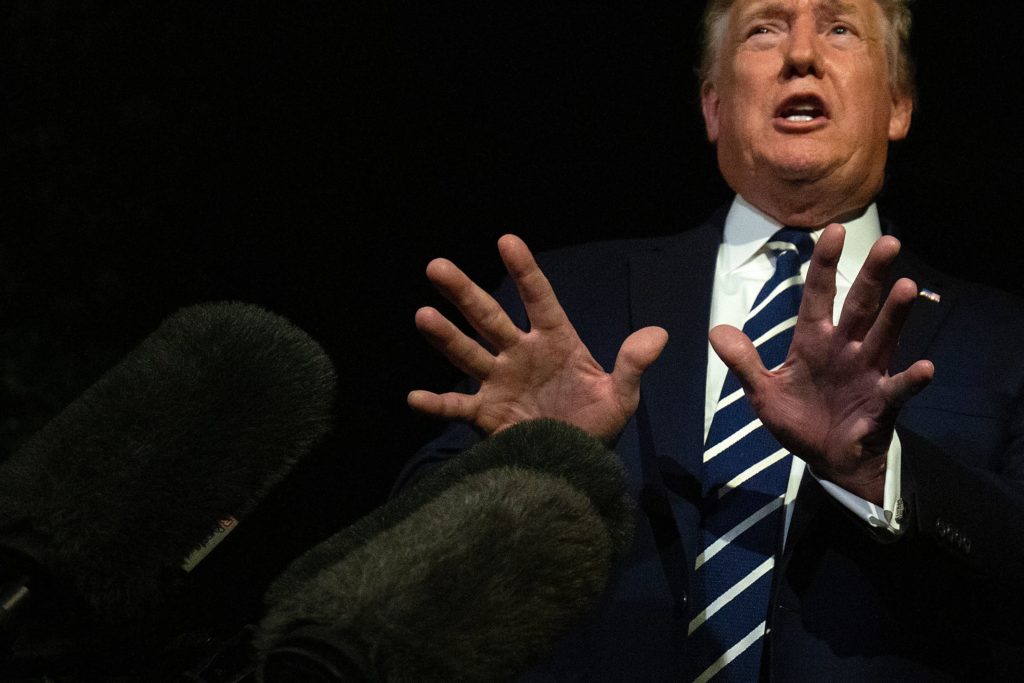The mythical Chinese Trojan horse
At a time when most of the companies are vulnerable to takeovers due to the crash in global stock markets following the coronavirus pandemic, unfounded fears of a Chinese raid on their prized businesses seem to have gripped many western nations.
On Sunday, European Union’s competition commissioner Margrethe Vestager, a staunch defender of open markets and free competition made a dramatic u-turn when she advocated that European Union governments ought to interfere in the markets and step in by buying shares in their domestic companies should they sense a threat of hostile takeovers, notably by foreign companies. As recently as in December, she had backed Dutch proposals for modifying EU laws in order to allow the regulators step in when government-backed companies distort the market or indulge in anti-competitive practices.
Vestager is not the lone European politician thinking of governmental action to support local companies in view of the dramatic collapse of the global stock markets over the past six weeks, ever since the coronavirus pandemic began its vice like grip over Europe. Low stock prices and the worst ever collapse of current business as well as a terrible outlook, at least in the mid-term has made several blue) chip European and American companies easy targets for takeovers, notably hostile takeovers.
In case of a takeover bid by a hostile raider, the existing managements of most companies would also find themselves handicapped in being able to mount any effective defensive measures, not only due to a severe strain on the current cash flows but also by the abrupt disruption of their normal day-to-day management processes caused by the pandemic and the subsequent lockdowns that have been imposed in many countries around the world.
The unprecedented collapse of global stock markets thus presents a unique opportunity for large-scale consolidation of businesses, especially in areas like retail, hospitality and tourism which have been battered the most by the covid-19 pandemic. There are already many reports from market analysts across the world pinpointing precisely such opportunities, which have kept rising in numbers over the past several weeks.
Normally, European government would have looked the other way in case of market consolidation moves so long as they did not flout the competition norms in place. In fact, most governments and regulators would adopt an entirely laissez-faire attitude in even hostile takeover bids and let the matter be settled between the existing shareholders and the buyers. Rarely has any European government intervened in order to prevent hostile bids as long as they met the competition policy. However, this time around, even before the management of any company vulnerable to a takeover by a raider has turned to the government for help, several European politicians have already spoken their minds about what needs to be done to protect the ‘crown jewels’ of the continent from any takeover bids by ‘foreign’ companies.
Surprisingly, the first such call emanated from Germany, Europe’s largest economy, which stands on the shoulders of millions of excellently run small and medium-sized firms, collectively called the mittelstand that account for 80 pc of the economy. Though unrelated to the pandemic, the German government had pushed through a law giving the government final say over foreign companies buying German high technology companies. The law was in response to a Chinese takeover of Kuka, a leading robotics firm in Germany two years earlier.
These measures have subsequently been reinforced to help the German industry deal with the side-effects of the pandemic. The German government’s measures include provisions for the government ministers to intervene and block whenever a non-EU entity tried to buy a stake of 10 pc or more in any German firm that’s active in key areas such as robotics, biotech, IT security or artificial intelligence, among others. In addition, the German government unveiled a package worth up to EUR 750 billion to mitigate the damage of the outbreak. Berlin says it would also protect firms from insolvency as well as unwanted takeovers during the crisis with a newly created economy stabilisation fund of EUR 100 billion to allow the government to take direct equity stakes in struggling German companies in exchange for injections of cash.
These measures reflect the degree of fear of foreign interference in European economy. Ironically, the fears were stoked and rose sharply recently following clumsy attempts by the United States administration to persuade a CureVac, a leading German biotech company developing a vaccine for coronavirus, to move its research work to the US. Though the White House denied the allegation made by the German health ministry, the clumsy bid by the Trump administration to strong arm its way to a vaccine raised heckles all over the EU and renewed the fears, which were not helped by several commentaries and reports in the mainstream as well as social media about an impending raid by the Chinese government on the jewels of businesses in the continent.
The allegations were centred on China’s immense foreign currency reserves, which stood at USD 3.1 trillion at the end of last year. The allegations, made without any supporting evidence of any kind, centred around the possibility of China using the current market situation to buy into key frontline EU businesses, especially those at the leading edge of technology and innovation in all spheres, including pharmaceutics and biotechnology, the current hot topics all over the world.
Incidentally, the Europeans are not the only ones worried about takeovers. Even several US firms too are feeling threatened. A report by Reuters said that many managements, worried about hostile raiders — corporate rivals or hedge funds – have adopted ‘poison pills’, measures that make acquisition of a company’s shares above a certain limit impossible as the target company is allowed to issue new shares at a steep discount to existing shareholder. The report said that the number of poison pills adopted by companies had more than doubled since the last year.
The stance adopted by both the US and the EU however smacks of hypocrisy. While the US government itself has attempted to stealthily acquire technology from Germany, the EU has been the biggest preacher of open markets and free trade for decades. However, the continent has made a very convenient u-turn when it is feeling vulnerable. Markets are either free or not. And if policies governing international trade can be twisted or bent around just to suit the whims and fancy of any political leader, it would be just another knife in the back of World Trade Organisation (WTO) and international trade, both of which have been under tremendous stress for years now due to a sharp rise in protectionism all around the world.










